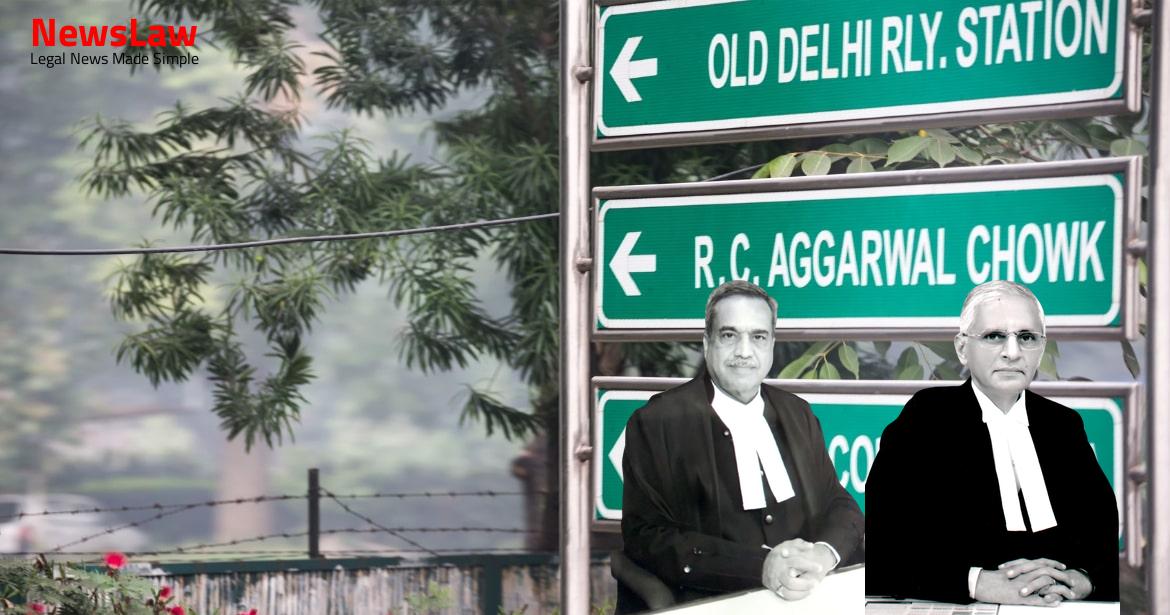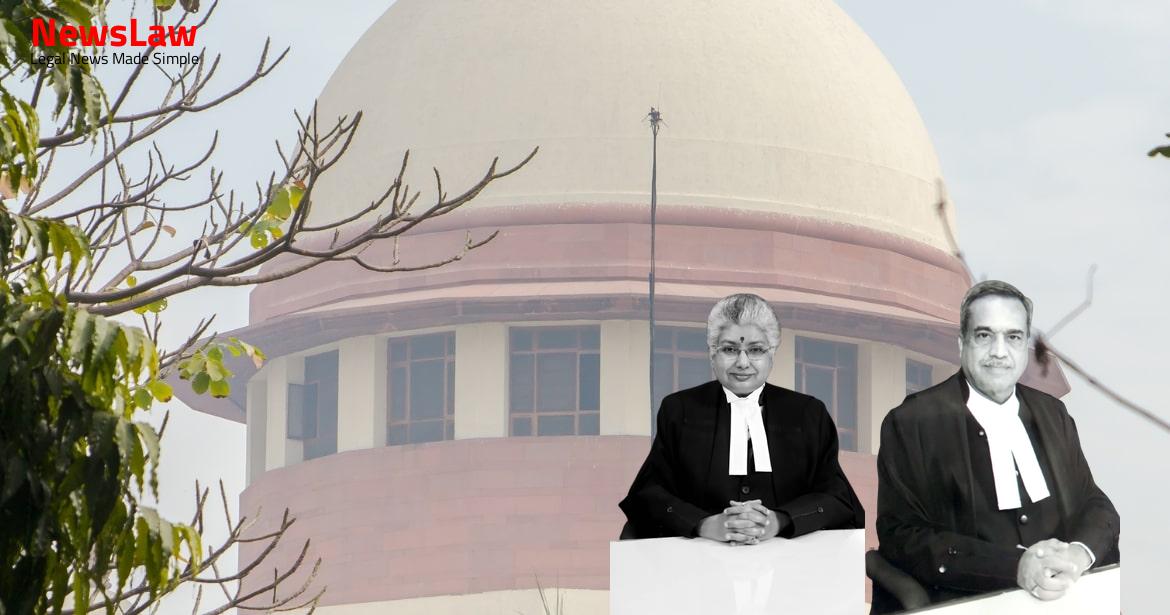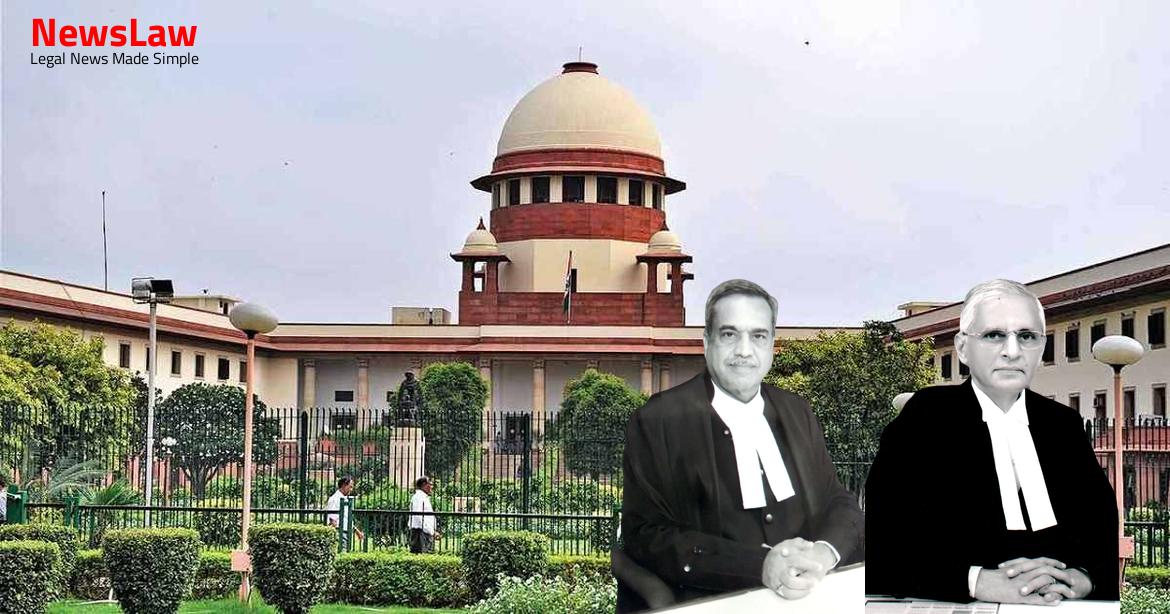The courts play a critical role in assessing requests for corrections to a public servant’s date of birth. Timeliness is a key factor in determining the outcome of such cases, as seen in recent legal analyses. Delays in submitting requests for date of birth corrections can have significant legal ramifications, impacting not only the individual public servant but also broader implications within the organizational framework. Let’s delve deeper into the intricacies of court judgments on this important issue.
Facts
- The original plaintiff was appointed with the appellant corporation in 1984 with a recorded date of birth as 04.01.1960.
- After 24 years of service, the plaintiff requested a change in date of birth from 04.01.1960 to 24.01.1961.
- A suit for declaration was filed by the plaintiff to establish his date of birth as 24.01.1961.
- The suit was opposed by the appellant corporation citing the Karnataka State Servants (Determination of Age) Act, 1974.
- The appellant corporation argued that the request for changing date of birth should be made within a stipulated period from the date of joining or commencement of the Act.
- The plaintiff’s suit was dismissed by the Trial Court based on the Act’s provisions and the corporation’s rules.
- Feeling aggrieved, the plaintiff filed Regular First Appeal No.1674 of 2013 before the High Court, which eventually allowed the appeal in favor of the plaintiff.
- The High Court noted the difficulty for the plaintiff to avail the remedy within the prescribed time frame and highlighted that the corporation’s resolution was not brought to the plaintiff’s notice.
Also Read: Judicial Review of Delayed Writ Petition
Arguments
- Appellant – corporation is aggrieved by the High Court’s judgment quashing the suit and decreeing a change in the date of birth of the respondent No.1.
- The appellant argues that the employee’s request for changing the date of birth was made 24 years after joining the service, which is beyond the statutory provisions.
- Citing relevant court cases, the appellant urges for the appeal to be allowed.
- The appellant contends that the employee should have requested the change in date of birth within a year of the Act, 1974 being adopted by the corporation in 1991.
- The appellant emphasizes that the employee, being part of the corporation, should have been aware of the rules and regulations governing employee matters.
- The appellant highlights that the High Court should have considered the delay and laches in the employee’s request.
- The appellant points out that the employee’s request for changing the date of birth did not comply with Section 5(2) of the Act, 1974.
- The respondent No.1’s advocate argues that as the High Court’s judgment has been implemented and the employee has reached superannuation age, the appeal is now moot.
- Another related appeal has also become moot as the corporation has already re-considered and rejected the request for changing the date of birth.
- The dispute is regarding the change of date of birth in the service record.
- Employees of the State Government have their age determined by the Karnataka State Servant (Determination of Age) Act, 1974.
- Section 4 of the Act, 1974 prohibits alteration of age except under the provisions of the Act.
- Section 5 of the Act, 1974 allows alteration of age or date of birth of State servants by the State Government after an inquiry.
- Sub-section (2) of Section 5 states that no alteration to the advantage of a State servant can be made unless an application is made within the specified time limits.
Also Read: Ownership Dispute: Legal Analysis on Admission and Decree
Analysis
- The correction of the date of birth of a public servant can have a chain reaction affecting others waiting for promotions.
- Section 6 of the Act, 1974 states that no court has jurisdiction to settle questions under the Act, and decisions under the Act cannot be questioned in court.
- Alteration of age or date of birth of a State servant can only be done by the State Government after an inquiry, with certain conditions and limitations.
- The appellant corporation adopted the provisions of the Act, 1974 by resolution in 1991, requiring requests for changes to be made within a specified time frame.
- The employee’s ignorance of the Act, 1974 cannot be an excuse for not following its provisions.
- The employee’s request for a change in date of birth was made after a significant delay, making him ineligible for relief according to the Act.
- Legal decisions on correction of date of birth emphasize that such matters should be considered not just in view of the individual public servant but also in the broader context.
- One specific case referred to in the judgment highlights the importance of considering the implications beyond the individual public servant when handling requests for date of birth corrections.
- Courts and tribunals must be cautious and careful when issuing directions for the correction of a government servant’s date of birth, especially towards the end of their career.
- Correction of date of birth should only be considered if there is irrefutable proof and the claim is made in accordance with prescribed procedures.
- A delay of over two decades in applying for correction of date of birth is fatal to the case, even if there is no specific rule prescribing the time limit.
- Correction at the fag end of service can impact the promotion prospects of other employees and should be discouraged.
- Claim for correction of date of birth at the fag end of retirement cannot be entertained as a matter of right, even with good evidence.
- Once a date of birth is entered in the service record and accepted by the employee, it cannot be changed.
- The court or tribunal must ensure that a reasonable application is filed before issuing any direction.
- The respondent’s application, filed 25 years after induction into service, is deemed unreasonable.
- Lack of attempt to explain the delay in filing further weakens the respondent’s case.
- Previous court decisions emphasize the importance of timeliness in such matters.
- The absence of a prescribed time-limit in Rule 84 of the M.P. Financial Code does not excuse unreasonable delays in filing applications.
- Correcting errors like the date of birth in service books is a crucial issue for public servants.
- The court or tribunal must consider the timeliness of applications when addressing a public servant’s grievances.
- Application for change of date of birth can only be made as per relevant provisions/regulations applicable.
- Even with cogent evidence, the change of date of birth cannot be claimed as a matter of right.
- Application can be rejected on the ground of delay and laches, especially when made towards the end of service or close to retirement age.
- Law on change of date of birth summarized: (i) application must adhere to relevant regulations, (ii) change cannot be claimed as a right solely based on evidence, (iii) rejection on grounds of delay and laches is permissible, particularly towards the end of service or close to retirement age.
- Respondent’s application for change of date of birth rightfully rejected based on delay and laches, making the employee not entitled to the decree of declaration sought.
Also Read: Interpretation of Statutory Limitation under Section 263(2)
Decision
- The question of law has been decided in favor of the appellant corporation.
- This indicates a favorable outcome for the appellant in the legal aspect of the case.
Case Title: KARNATAKA RURAL INFRASTRUCTURE DEVELOPMENT LIMITED Vs. T.P NATARAJA (2021 INSC 521)
Case Number: C.A. No.-005720-005720 / 2021



